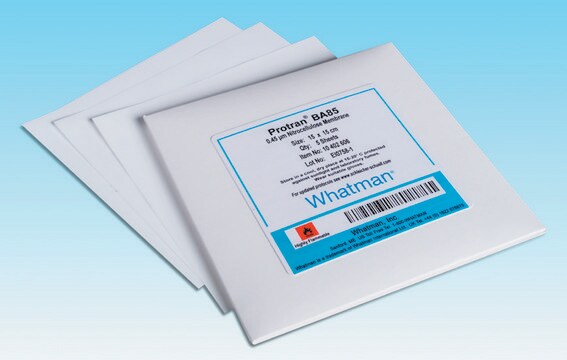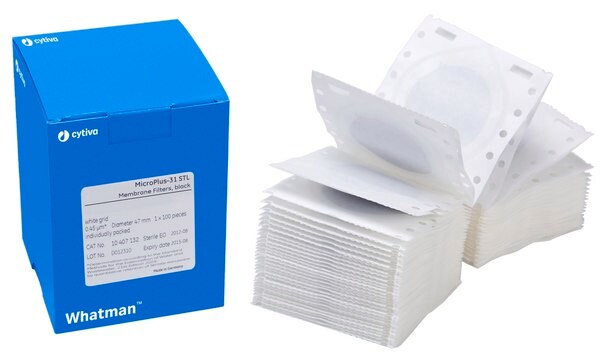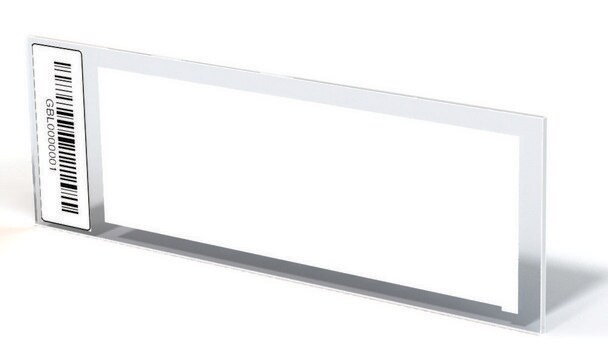WHA7141004
Whatman® mixed cellulose ester WME filter discs 0.45 μm pore size
white, hydrophilic, gridded, sterilzation: no, interleaving paper, pad, 100 ea, 47 mm diam
Synonym(s):
Whatman® nitrocellulose membrane filters, Whatman filter, Z745820, membrane filters, syringe filter
About This Item
Recommended Products
Product Name
Whatman® mixed cellulose ester membrane filters, gridded white, pore size 0.45 μm, diam. 47 mm, pack of 100 ea
material
gridded white
sterility
non-sterile
packaging
pack of 100 ea
manufacturer/tradename
Whatman 7141-004
Whatman Article No. 28420718 (US reference)
diam.
47 mm
pore size
0.45 μm
Looking for similar products? Visit Product Comparison Guide
Features and Benefits
- Sterile options available for critical applications.
- Excellent contrast for easier particle detection.
- Grids are nontoxic and do not inhibit bacterial growth, ensuring sample integrity.
- Black plain and black gridded membranes have a mix of cellulose nitrate and cellulose acetate.
- The membrane offers a high degree of internal surface area for greater adsorption of product.
- Higher dirt loading capacity.
- Biologically inert with good thermal stability.
- No surfactants to contaminate samples.
- Uniform microporous structure of membrane gives high flow rates.
Other Notes
Legal Information
Signal Word
Danger
Hazard Statements
Precautionary Statements
Hazard Classifications
Flam. Sol. 1
Storage Class Code
4.1B - Flammable solid hazardous materials
WGK
WGK 3
Choose from one of the most recent versions:
Certificates of Analysis (COA)
Sorry, we don't have COAs for this product available online at this time.
If you need assistance, please contact Customer Support.
Already Own This Product?
Find documentation for the products that you have recently purchased in the Document Library.
Customers Also Viewed
Our team of scientists has experience in all areas of research including Life Science, Material Science, Chemical Synthesis, Chromatography, Analytical and many others.
Contact Technical Service






